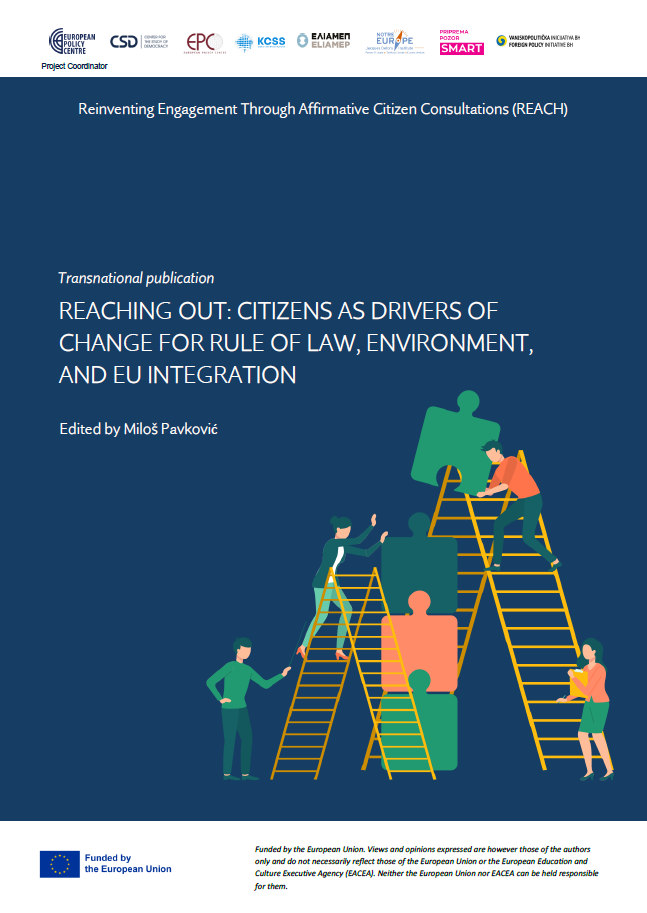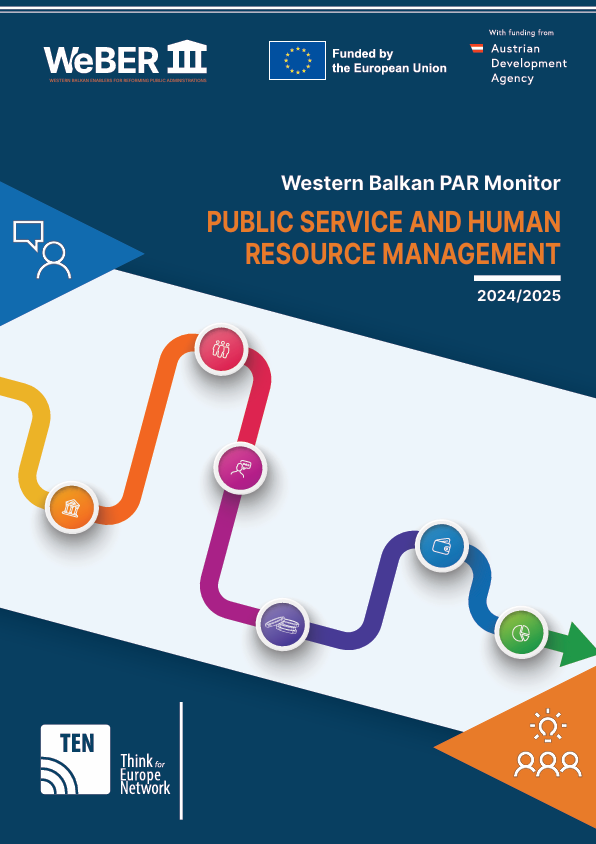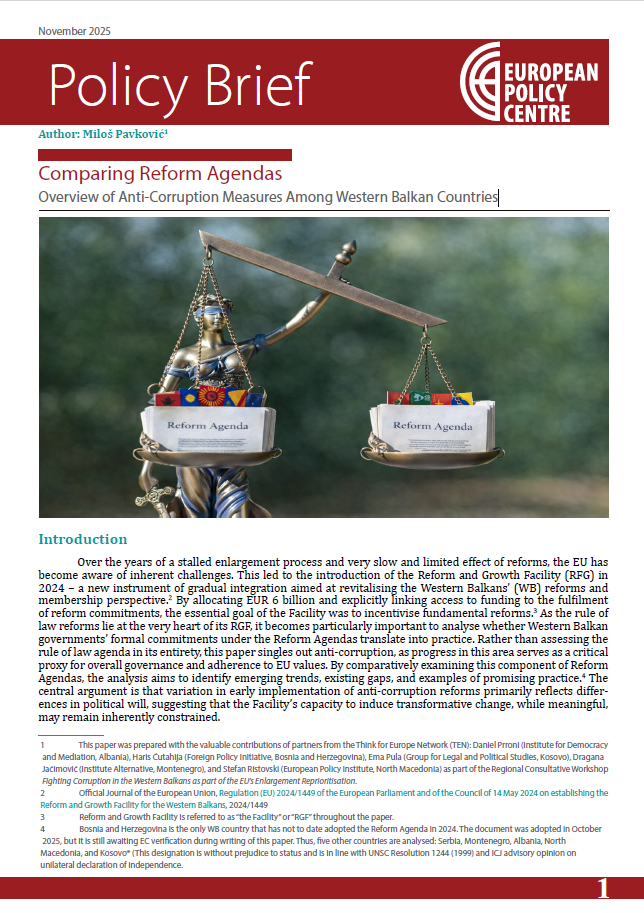Headquarters: Svetog Nauma 7, 11000
Office address: Đorđa Vajferta 13, 11000
Phone:: +381 11 4529 323
This publication represents the result of four citizen consultations (three local and one national) in Serbia as part of the Reinventing Engagement Through Affirmative Citizen Consultations (REACH) initiative. Consultative events gathered more than 90 citizens who discussed key challenges in three thematic areas: rule of law, EU integration and environment.
The debates organised by the European Policy Centre (CEP) help reveal key political trends, citizens’ concerns and recommendations for different stakeholders, including local self-government units, national government and even the EU. The consultations revealed a nuanced public understanding of the interdependence between these three domains: citizens repeatedly stressed that without the rule of law, neither environmental sustainability nor genuine progress towards EU accession can be achieved. Key problems that citizens identified include inadequate implementation of laws, political pressure on the judiciary, low public trust in institutions, unqualified political appointments, widespread corruption, and legal uncertainty, as part of the rule of law thematic area. When it comes to the EU integration, citizens questioned the political will for actual accession to the EU, adding concerns of a lack of reform process and unfair treatment of the Kosovo dispute as key stumbling blocks. Finally, on environmental issues, the debates highlighted concerns such as inadequate waste management infrastructure, polluted drinking water, and the absence of strong cultural practices supporting environmental protection.
As part of the REACH consultative process, citizens proposed more than 30 concrete policy proposals for different stakeholders, from municipalities and local self-government units in Serbia, to ministries, government and judicial bodies, to finally EU institutions (European Commission, European Parliament, European Council). Following the national consultations, citizen delegates, in collaboration with experts, have come up with the final list of 12 policy recommendations. These concrete and actionable proposals are ready for immediate implementation by decision-makers.
The REACH consultations in Serbia represent a powerful demonstration of the untapped potential of deliberative democracy. Over the course of consultations, ordinary citizens from diverse backgrounds showed that they are both capable of grappling with complex issues and of co-creating meaningful policy proposals. Far from being passive observers of political life, participants engaged with high levels of knowledge, interest, and critical thinking, proving that inclusive deliberation can produce recommendations of direct value to decision-makers at both the national and EU levels. A central lesson of this process is that citizens are not only well informed about the challenges facing Serbia in the areas of the rule of law, EU integration, and environmental governance, but are also adept at articulating practical, actionable solutions.


